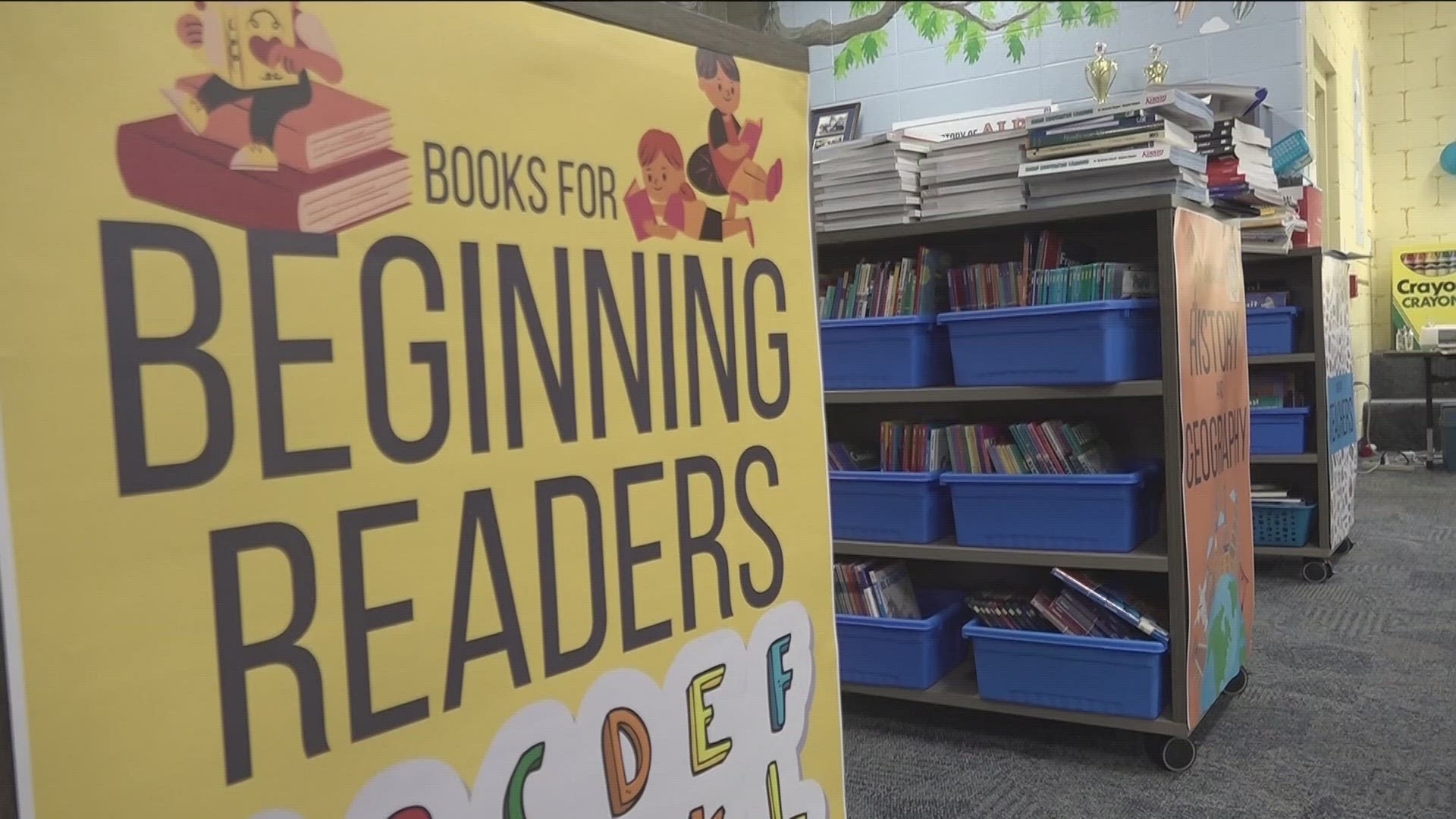MARIETTA, Ga. — To hear him read a book now, you’d never guess rising 4th grader Neal Dean Gilland used to struggle to finish a page.
He started kindergarten during the pandemic and paired with his Dyslexia, it left a lot of holes in his learning.
“There was a time we were very concerned about how he felt about himself and his worth because he knew he couldn’t read,” mom Beth Gilland said.
How well a child reads by the third grade is one of the best predictors of his or her future success.
“When [Neal Dean] came into third grade, he was reading on a kindergarten level based on our assessments. He was a conundrum,” reading specialist Tinsley Ray said.
Now, a new law is changing the way Georgia teaches its students how to read. The Georgia Early Literacy Act (House Bill 538) requires districts to start training teachers in Structured Literacy based on the Science of Reading beginning in 2025.
Two years ago, Marietta City Schools began using this new method to teach kids how to read. The Science of Reading taps into how the brain learns to read by decoding a word with phonics and language comprehension.
In action, it looks like a full-body method of sounding out a word.
In a demonstration at the kickoff to the new year, Marietta City Schools staff stood on the stage of the Marietta Performing Arts Center and decoded the word “churn.”
“CH- UR – N,” one teacher said as she tapped her shoulder, elbow and wrist with each phonetic syllable. She combined all the sounds as she slid her hand from her shoulder to her wrist to sound out the word “churn.”
They call it “tapping it out.”
Neal uses it often when he comes across a word that stumps him.
“SWIM – ING,” he said as he tapped his shoulder and elbow with each sound. “Swimming!” he said as he pointed to the word in the book.
Neal worked all year with Tinsley Key, one of 40 reading specialists in the district, and by the end of 3rd grade, he was reading on grade level, an almost unprecedented jump in the span of one year.
“It’s game-changing for their futures,” K-5 ELA Coordinator Nik Philmon said. “It used to take us years to close that gap. We’re seeing them close right out of the gate.”
Milestone test scores prove it. Every student across every demographic made gains.
The numbers show a 16% increase for students with disabilities and white students, a 15% jump for Black students, and a 14% improvement in students who are economically disadvantaged.
Scott Johnson, the Chairman of the new Georgia Council on Literacy (born out of another literacy law signed this year (SB 211), said that kind of success can become a reality at other districts across the state.
“I can’t say this is the most important thing Georgia will do in the next decade, but I will say without a doubt it is as important as anything Georgia will do in the next decade,” Johnson said.
As for the Gilland family, hearing Neal Dean read is proof enough.
“He started bringing home books, started connecting with the world around him. This works. And it’s not test scores that are proving it to us. It’s our child,” his mom said.
Neal Dean’s favorite part of reading?
“That when I’m finished, it feels like I’ve accomplished something,” he said.

